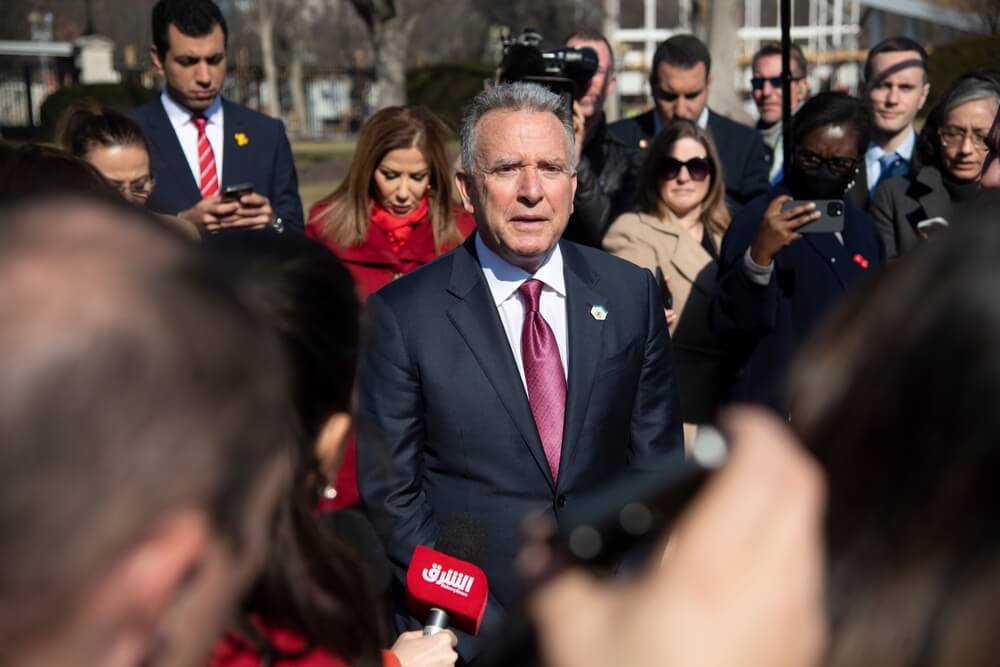In anticipation of the 80th anniversary of Victory Day on 9 May 2025, Vladimir Putin sees his geopolitical strategy as a series of triumphs.
As a former communist and KGB officer, Vladimir Putin has dedicated his term in the Kremlin to resurrecting a Russian empire and confronting it with the West.
Having avoided collapse after recklessly and incompetently starting the war against Ukraine in 2022, he now sees an isolationist America as a close ally and Europe as the main adversary. What more could he want in the short term?
Vladimir Putin is patient, and he believes that he still has years ahead of him to realise his global ambitions, which certainly include America. An isolationist America serves him only as a temporary diplomatic and geopolitical victory and even as an ally against Europe.
He wants to wage a permanent conflict against the West, but not directly against the combined might of the American and European armed forces.
Europe, without the support of the USA, is his ideal target for future aggression. Russian propaganda is already drawing parallels with the Second World War and presenting the USSR's alliance with America against Nazi Germany as a parallel to today's dynamics.
For Putin, Victory Day is not just a commemoration of past Soviet triumphs but a celebration of Russia's current global dominance and subjugation of other nations.
Warnings from Eastern Europeans
Many Europeans believe that Europe is his next target, particularly the nations "liberated" by the Red Army during the Second World War. They understand this threat from imperial Russia only too well.
For them, Soviet liberation during the Second World War meant occupation, a reality that only came to an end with the collapse of the Soviet Union.
Despite the documented atrocities in Ukraine, some world leaders, including some Europeans, plan to attend the Victory Day parade in Moscow. Moscow sees this as symbolic recognition of Vladimir Putin's supremacy.
This diplomatic coup in Europe would not have been possible without the Trump administration's pacifist inclination to cooperate with Moscow and its general stance on the Ukraine war.
Meanwhile, other European leaders are expected to meet with President Volodymyr Zelensky in Kyiv on 9 May to signal that they believe peace with Putin's Russia is a myth.
Zelensky has invited leaders from European countries to demonstrate the unity of Europeans against Russian imperialism
President Zelensky, who represents a country that has been repeatedly occupied by Russia but remains unbending in its quest for freedom from Russian control, is organising an alternative Victory Day event.
He has invited leaders from European countries, including those once occupied by the Soviets under the false narrative of "liberation", to demonstrate the unity of Europeans against Russian imperialism.
Equating Europeans with Nazis
For Moscow, it is clear that America does not have enough understanding of the historical feelings of Europeans towards Russian imperial endeavours. Vladimir Putin exploits this discrepancy and benefits from US representatives who overlook Europe's Russia-centred history.
The Kremlin sees the Trump administration's reluctance to prioritise a fair solution for Ukraine as an opportunity. This reluctance is reinforced by the apparent rapport between Vladimir Putin and US envoy Steve Witkoff.
 Moscow is delighted with Steve Witkoff's repetition of Kremlin talking points that promote an alternative reality based on a distorted Russian history
Moscow is delighted with Steve Witkoff's repetition of Kremlin talking points that promote an alternative reality based on a distorted Russian history
Moscow is delighted with Witkoff's repetition of Kremlin talking points that promote an alternative reality based on a distorted Russian history.
In exchange for potential commercial or domestic political gains, the Kremlin also welcomes America's growing disengagement from European affairs in relation to Ukraine.
Russian propaganda has already begun to portray Europeans as the heirs of Nazi Germany. Individuals such as the German Ursula von der Leyen and the Estonian Kaja Kallas fit seamlessly into this false Russian propaganda narrative.
Kaja Kallas' Baltic heritage, linked to a region that fiercely resisted Soviet occupation, adds fuel to Russia's nationalist agenda.
When Vladimir Putin lectured Witkoff about fabricated Russian history, he clearly omitted the fact that Kallas is also fluent in Russian—a product of forced Russification in the territories colonised by Russia.
The presence of a Russian-speaking population in Ukraine or elsewhere does not mean cultural unity with Russia; it means historical control and colonisation by the Russian empire.
Encouragement from Washington
Vladimir Putin is encouraged by the USA's declining interest in supporting Ukraine and Europe's current inability to decisively confront the Russian armed forces. This adds colour to the forthcoming 80th anniversary of victory.
This allows Vladimir Putin to maintain his anti-Western, and primarily anti-European, propaganda and prolong the war. Ending the conflict is not on his to-do list. Moreover, returning veterans also pose a risk of destabilising Russia.
For Putin, the forthcoming Victory Day is not about the past but about celebrating current and future victories over the West
Vladimir Putin has already set his sights on his next targets: Poland, the Baltic states, Finland or Norway. It is no wonder these countries were the first to emphasise the Russian threat. They know Russia well enough.
For Putin, the forthcoming Victory Day is not about the past but about celebrating current and future victories over the West.
Russia's ability to withstand challenges during the previous US administration, find common ground with the current administration and sow discord among European leaders attending the Red Square parade bolsters its confidence in future conflicts against Europe.